On a crisp autumn evening in 2014, fans packed into Moscow’s International House of Music to see one of Russia’s most famous musicians, Andrei Makareivich, perform. However, just a few minutes into the concert, Russian nationalists would pepper spray the crowded venue. While attacking the attendees, they chanted that Makereivich was a traitor due to accusations that he sold a guitar to buy armor for Ukrainian soldiers. This would mark the beginning of a harassment campaign against Makareivich, culminating with his band, Time Machine, having their tour canceled and with Makareivich moving to Tel Aviv. As the Putin regime becomes more and more authoritarian, bands throughout Russia find themselves harassed into silence or exile. This trend has been exacerbated following the 2022 Russian invasion of Ukraine, resulting in many Russian performers leaving the country or suspending their tours.
Aquarium, DDT, and the aforementioned Time Machine are three of the most famous Russian rock bands. However, their fame has not come easily as all three bands faced censorship under both the Soviet Union and Putin’s regime. The Soviet government restricted Time Machine due to their dissatisfaction with some of Time Machine’s lyrics, while Soviet authorities outright banned Aquarium and DDT. Aquarium was banned following accusations of promoting homosexuality and lewd behavior at a 1980 Tbilisi rock festival, while DDT was banned for performing their song “Don’t Shoot,” which authorities saw as a criticism of the Soviet invasion of Afghanistan, among other actions which offended the Soviet government. DDT’s cancellation for criticism of the Soviet invasion of Afghanistan foreshadowed today’s events, as these same bands would find themselves facing censorship due to criticism of Russia’s 2022 invasion of Ukraine.
The punishments in Russia and Belarus for speaking out against the war can be severe, with recent Russian laws allowing up to 15 years in prison for criticizing the war. The situation is similar in Belarus, leading to pressure on bands to self-censor if they want to avoid government harassment or imprisonment. Molchat Doma, a post-punk band from Minsk, Belarus, recently gained notoriety on TikTok, leading it to explode in popularity worldwide. However, many people who post the band’s music alongside cheery videos are unaware of the meaning of their lyrics or the terrible circumstances Molchat Doma and other bands are in. Molchat Doma’s bassist, Pavel Kozlov, spoke on the political situation they face in an interview with The New York Times,
“Any hasty word that was said too loud can result in a loss of freedom,” Kozlov said of daily life in Belarus. “In a good situation, that would mean 15, 30 days of arrest; in a worst case, two to three years behind bars,” he added. “So, as a band, we don’t talk about politics, and our music doesn’t touch upon it.”
Despite the potential consequences, many bands still spoke out against the war and the political situation in Russia and Belarus. Molchat Doma posted to Instagram criticizing the war and providing links to humanitarian organizations which help Ukranians. Aquarium and DDT are also notable examples of bands that have taken the risk of openly criticizing the war. Aquarium’s frontman, Boris Grebenshikov, made several public statements opposing the war, including a statement in which he called the war between Russia and Ukraine “madness” and called those who started a “disgrace to Russia.”
“Old people, women, and children are dying for some kind of Napoleonic plans of our latest Caesar, yes?” said DDT’s frontman, Yuri Shevchuk… “The motherland, my friends, is not the ass of a president that you have to lick and kiss all the time. The motherland is a poor grandmother selling potatoes at the train station. That is the motherland.”
Both DDT and Aquarium have since had their tours canceled in Russia. Grebenshikov was forced to relocate to London while Shevchuk has been charged with discrediting the army. The Russian rap group Anacondaz found itself in a similar situation as they were shut down by Russian police mid-show due to controversial statements made by group members. The group’s tour was canceled, and the prosecutor’s office from the Russian region of Sverdlovsk admitted that previous show cancellations were due to “provocative” statements made by the group. Another punishment faced by all three groups was their placement on a list of banned bands and musicians. Although the authorities have not officially confirmed this list, it was leaked to Russian media outlets. The Russian government has gone so far as to distribute the list to St. Petersburg karaoke bars in a further effort to stop anti-government messages from spreading through music.
These efforts to silence musicians who state opposition to the war are part of a broader effort to silence critics of the Russian and Belarusian governments. Since the invasion of Ukraine, Russia introduced a wide range of legislation meant to stem opposition to the war in Ukraine. These laws punish disseminating “false information” containing data on the use of the Russian military, “discrediting” the actions of the Russian military or government, including pacifist statements, and advocating for sanctions against Russian entities with up to fifteen years in prison and a hefty fine depending on which article an individual is charged under. This legislation was written vaguely, meaning anyone speaking against Russia’s invasion could be charged and convicted. “This law will force punishment – and very tough punishment – on those who lied and made statements which discredited our armed forces,” the Chairman of the Duma said concerning the legislation.
The anti-free speech climate in modern Russia has profoundly affected the country’s music scene. Roughly 30% of musicians and bands have either left the country or stopped performing. Those who have left the country face fears that they will never be able to see their home again as they face threats and harassment, including from government members. Viacheslav Volodin, the Chairman of the Duma, singled out performers who move abroad, accusing them of “betrayal.” The remaining artists are under extreme pressure to either support Putin’s regime or at least refrain from making any public statements or singing any songs that could show opposition to the government. Should they be seen as “provocative” or against the Russian government, they will face the punishments seen by those on the banned musicians’ list.
Without freedom of speech and expression, Russian music scenes cannot thrive. Music is an essential aspect of self-expression and a crucial political and philosophical outlet for both creators and listeners. The Russian government’s actions to limit the ability of artists to express how they truly feel and their severe punishments for the ones who rebel will have profoundly adverse effects on wider Russian society. Russia already faces a brain drain as many skilled workers have fled the country to seek better opportunities abroad, and this trend has affected its music industry as well. As musicians flee the country and the government censors their music, Russians will have fewer outlets to express themselves, hampering Russia’s wider cultural scene and the development of free thought within the country.
Many of these exiled Russian musicians have begun performing for audiences outside the country to continue expressing their music. Little Big, a band that fuses influences from punk, rave, and pop, is living in and touring throughout the United States. This tour comes after they released an anti-war single titled “Generation Cancelation,” a project which uses both auditory and visual methods to criticize the war and Putin’s inhumane actions. Georgia has also become a hotspot of anti-Putin Russian musicians as it is a common destination for those who fled Russia. One such example is members of the Russian bands Denaturation and Mirolyubivnoye Morye have built a studio and continue to perform together despite the circumstances they face, an act that highlights the perseverance of the Russian and Belarusian music scenes.
“Autumn – will we crawl, will we reach the answer: What will happen to the motherland and to us?” Shevchuk asks in DDT’s song What is Autumn? Although this song was written in 1991, its lyrics reflect the current state of Russia’s music scene and broader political society. However, from smuggling records across the iron curtain to forming underground rock scenes in the face of heavy Soviet censorship, the Russian music scene has shown a strong ability to adapt and overcome hurdles. This trend is likely to continue despite Putin’s draconian actions.
Feature Image Source: New York Post
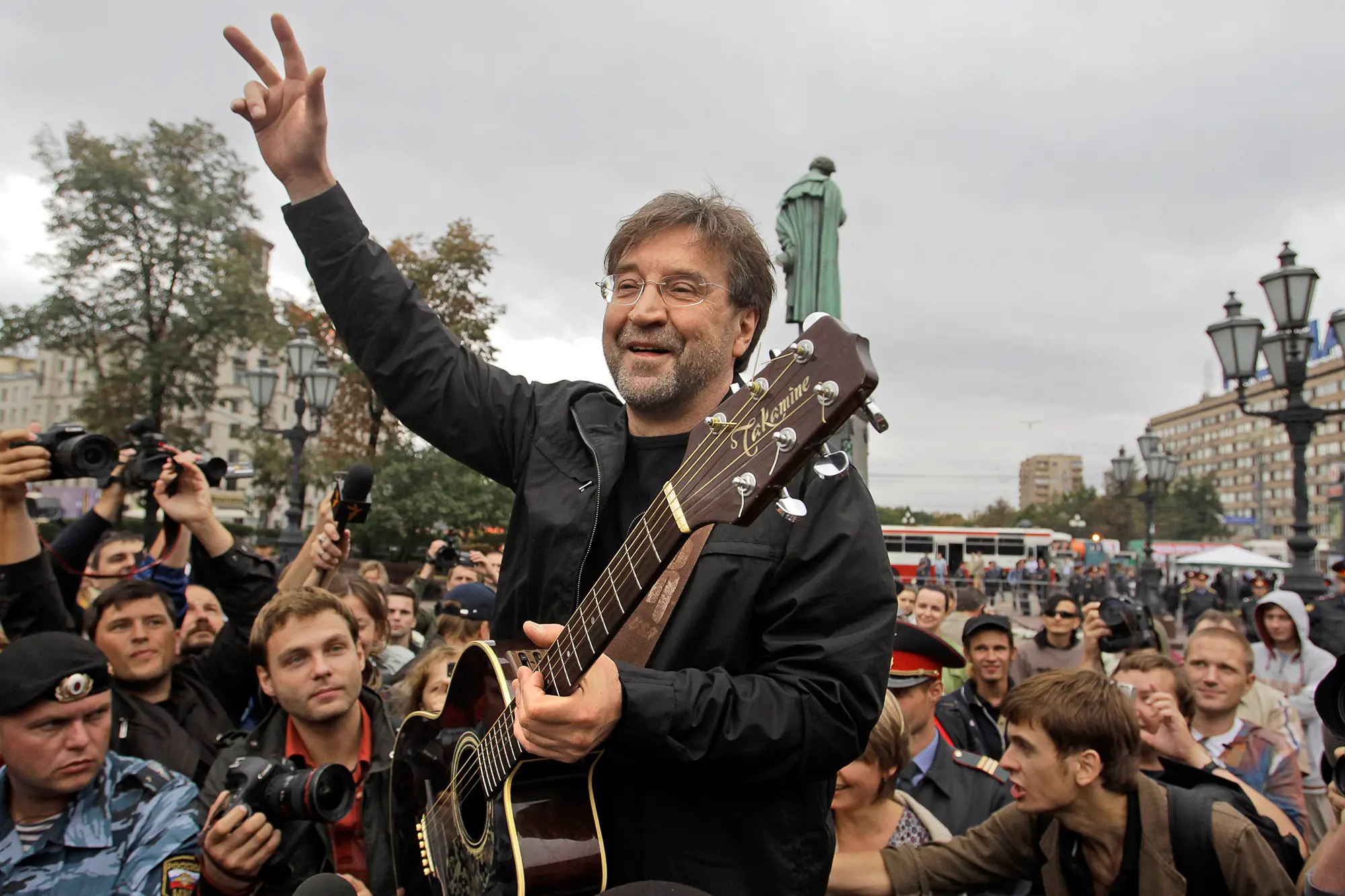
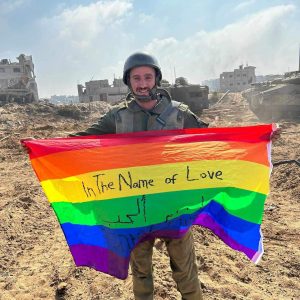

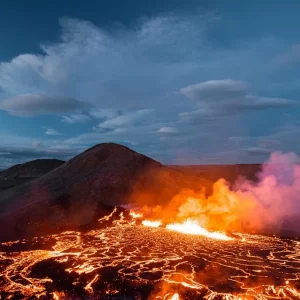
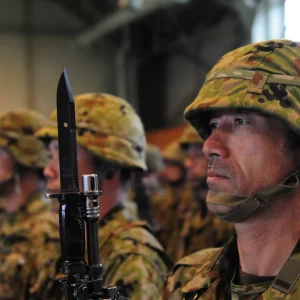
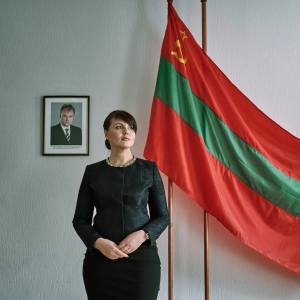
Comments are closed.